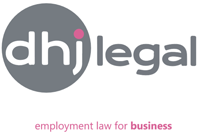Rule changes
Rules that address non-compliance with IR35, introduced in 2017 to the public sector, are being extended to workers providing services to medium and large private employers with effect from 6 April 2020.
IR35
IR35 legislation was brought in nearly 20 years ago to tackle tax avoidance. The issue of concern was that many individuals were avoiding employee income tax and NICs by supplying their services through intermediaries (usually personal service companies) and typically paying themselves in dividends.
IR35 places the responsibility on the intermediary to determine whether the worker would have been a deemed an employee of the end-user of the worker’s services (the intermediary’s client), but for the existence of the intermediary.
If the worker would have been deemed an employee, the intermediary must operate payroll, make deductions for income tax and employee’s NICs and pay employer’s NICs on the fees received for the services.
What is changing?
As of April 2020, all medium and large engagers will become responsible for assessing an individual’s employment status and deducting the right tax and NICs. It means that the responsibility is being shifted from the intermediary to the end user of the worker.
Small entities are excluded from the changes, which means that intermediaries that supply workers to small companies will need to continue to comply with IR35 as it applies right now. For a company to qualify as small it will need to satisfy two of the following requirements:
- annual turnover of not more than £10.2 million.
- balance sheet total of not more than £5.1 million.
- no more than 50 employees.
Determining whether deemed employment status applies
In all cases, if the services that the worker personally provides, or is under an obligation personally to provide to a client are similar to those of an employee then deemed employment status will apply. It will also apply if the worker is an office holder of the client or of an entity associated with it (other than the office of statutory auditor to the client).
CEST tool
Although there is no obligation to use the online check on employment status for tax (CEST) provided by HMRC, it has the advantage that HMRC will be bound by the output of the service unless it has been obtained fraudulently.
https://www.tax.service.gov.uk/check-employment-status-for-tax/reason-for-using-tool
If the CEST concludes that the worker is in deemed employment, the party that pays the intermediary (usually the end user client) must make payroll deductions and account for NICs. The classification of deemed employment will not confer any employee rights on the individual and the intermediary will remain responsible for the payment of benefits such as Statutory Sick Pay, Statutory Maternity Pay and for the operation of pensions auto-enrolment.
Action following employee status determination
The client must inform both the worker of the outcome of the review and, if requested, provide a written response as to the how the conclusion on employment status was reached.
Where there are multiple parties in the labour supply chain there are requirements to ensure that all parties have the information they need to comply with their obligations. Failure to adhere to the requirements could see the defaulting party being responsible for operating PAYE.
In the case of ongoing contracts in the private sector, the worker must be informed of the status determination before the due date for the first payment under the contract on or after 6 April 2020). For new contracts, status should be determined before services are performed under the contract and, ideally, before the contract is signed.
There is a requirement for a client-led, disagreement process which will enable the worker to challenge a status determination (and obliges the client to respond to such challenge within 45 days.
Responsibility for operating PAYE
In most case, but not all, responsibility for deducting tax under PAYE will lie with the end user client as the likely fee-payer. If there are multiple entities in the labour supply chain then it is most likely the entity that pays the intermediary that will be responsible.
Payments which constitute deemed earnings for taxation purposes are those that can “reasonably be taken” to be for the worker’s services to the client and deduction of expenses met by the intermediary is at the discretion of the person paying responsible for deducting tax.
Information to be obtained from the worker
To operate the payroll deductions, the deemed employer will need the following information from the worker:
- Full name.
- Date of birth.
- National insurance number.
- Bank account into which the payments are to be made (the intermediary).
Other points
- As the intermediary remains the primary employer, the individual will not have a form P45
- A full submission return at the time of the first payment is required.
- The worker will be required to sign a starter declaration C (employee with other employment).
- The deemed employer must give him a P60 at the end of the tax year and a P45 at the end of the contract.
- Monthly payslips are not required.
This note should not be relied on as legal advice. The information relates to the UK only. Please contact us for advice on your specific circumstances.

